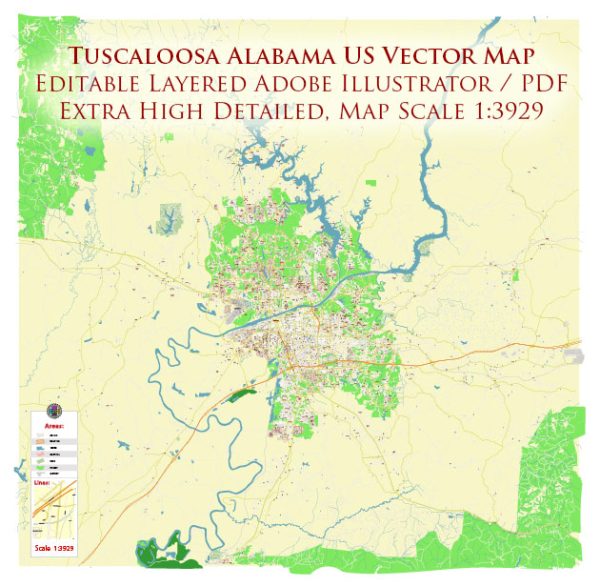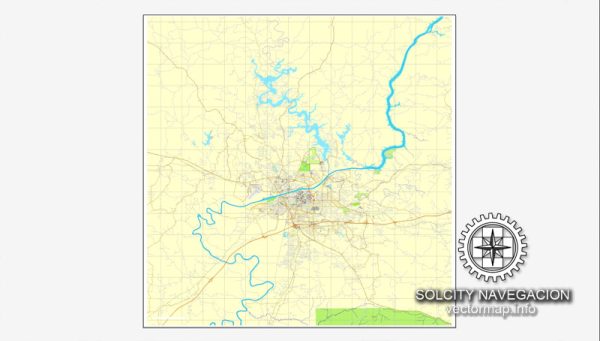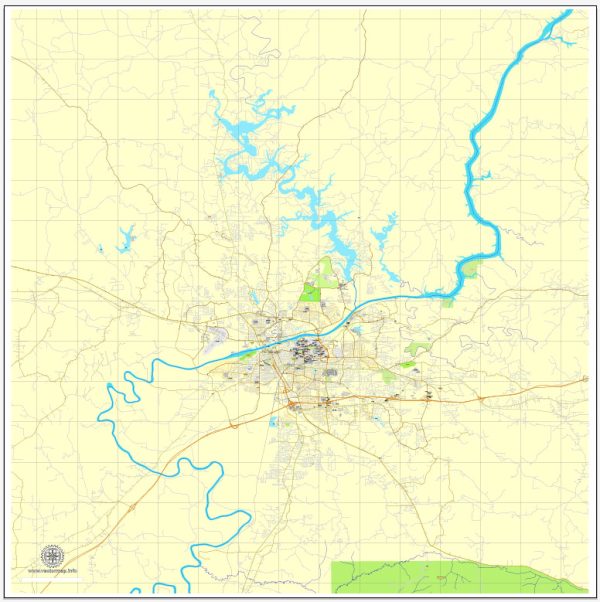Tuscaloosa, Alabama, is home to a diverse industrial landscape that plays a significant role in the regional and national economy. Here’s an overview of the industrial sectors and activities that are prominent in Tuscaloosa:
- Automotive Manufacturing: Tuscaloosa is perhaps best known for its thriving automotive manufacturing industry. The Mercedes-Benz U.S. International (MBUSI) plant, located in Tuscaloosa County, is one of the largest employers in the area. The facility produces a variety of Mercedes-Benz vehicles and is a key driver of the local economy.
- Aerospace and Aviation: The aerospace and aviation industry is also an important sector in Tuscaloosa. The region hosts several aerospace-related companies, including those involved in aircraft component manufacturing, maintenance, repair, and overhaul (MRO) services, and aviation training.
- Manufacturing and Metalworking: Tuscaloosa’s manufacturing sector extends beyond automotive and aerospace, with various metalworking, fabrication, and machining companies that support different industries. These businesses produce components, machinery, and equipment for both local and national markets.
- Chemical and Plastics: The chemical and plastics industry has a presence in Tuscaloosa, with companies engaged in the production of various chemical products, including polymers, resins, and specialty chemicals. These products serve a wide range of applications, such as packaging, construction, and automotive.
- Distribution and Logistics: The city’s strategic location along major transportation routes, including Interstate 20/59 and the Port of Tuscaloosa, has made it a hub for distribution and logistics companies. Tuscaloosa serves as a vital distribution center for goods coming into and leaving the region.
- Healthcare and Medical Services: The healthcare industry is a growing sector in Tuscaloosa. The city is home to several hospitals, medical clinics, and healthcare-related businesses, contributing to the local economy and providing essential services to the community.
- Education and Research: Tuscaloosa is home to the University of Alabama, which is a major driver of education and research in the region. The university fosters innovation and research in various fields, contributing to the growth of technology-driven industries.
- Agriculture and Agribusiness: The surrounding region of Tuscaloosa is known for its agricultural activities, including farming, forestry, and agribusiness. This sector encompasses crop production, livestock farming, and the processing and distribution of agricultural products.
- Retail and Hospitality: Tuscaloosa has a thriving retail and hospitality industry, with numerous stores, restaurants, and hotels that cater to both residents and visitors. The city’s vibrant cultural scene and sporting events also contribute to the local economy in these sectors.
- Information Technology and Services: With the growth of technology-driven industries, there is a rising presence of information technology companies and IT services providers in Tuscaloosa. These businesses offer a range of IT solutions to support various industries.
Tuscaloosa’s industrial landscape continues to evolve, with a mix of traditional and modern industries driving economic growth and diversification. It’s worth noting that the city’s economy is closely tied to the broader region’s economic activities, making it an essential part of the state of Alabama’s industrial and economic profile.




 Author: Kirill Shrayber, Ph.D. FRGS
Author: Kirill Shrayber, Ph.D. FRGS